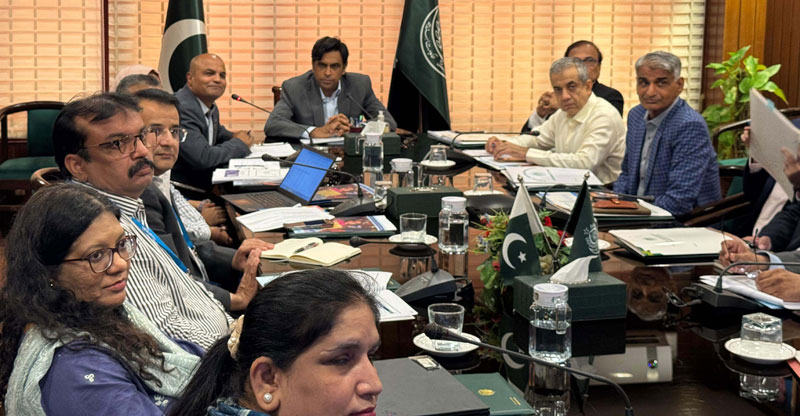On May 21, a senior UNICEF Pakistan team met with Asif Hyder Shah, the Chief Secretary of Sindh, to address the critical issue of out-of-school children and adolescents in the region. This encounter was pivotal as it underscored Sindh’s dedication to executing the nation-wide Education Emergency announced in May 2024. Additionally, they worked towards completing their multi-sector plan focused on addressing this educational challenge for the duration between July 2025 and June 2030.
In the course of the meeting, the Chief Secretary along with representatives from UNICEF examined the key goals outlined in the roadmap aimed at cutting down the population of out-of-school children and young people in Sindh by half within the span of five years. This plan pinpoints and tackles various obstacles rooted in structure, socioeconomic conditions, and culture that prevent educational opportunities. Developed collaboratively via contributions across several sectors such as School Education, Health, Social Welfare, Local Government, Finance, Planning and Development, Public Health Engineering, and DEPD—the Directorate for Enhancing Opportunities for People with Disabilities—it employs an all-encompassing lifecycle strategy connecting learning experiences to health services, nutritional support, child safeguarding measures, and community resources—from pre-natal stages right up until adulthood and employment readiness.
Chief Secretary Asif Hyder Shah restated the provincial administration’s steadfast dedication to the action plan and emphasized the necessity of interdisciplinary leadership and collaboration to attain enduring outcomes. Discussing the complex character of the problem, he remarked:
The problem of children who do not attend school extends far beyond just educational concerns—it’s actually a complex, multifaceted challenge that originates well before a child comes into this world. The roots lie in maternal health and nourishment, followed by proper birth registration, and affected significantly by factors like economic hardship, societal customs, child safeguarding measures, and availability of essential public amenities. A lack of schooling for a child typically signifies deficiencies spanning multiple areas such as healthcare, nutritional care, welfare programs, official documentation processes, and communal assistance networks. To achieve genuine advancements, our focus should transcend classrooms and embrace a comprehensive strategy covering individuals’ entire lifespans—from prenatal stages through early youth up until teenage years. For these reasons, the government of Sindh views addressing the matter of out-of-school kids not merely as an obligation reserved exclusively for the Education Ministry, but rather as a joint provincial mission requiring coordinated efforts among various governmental divisions and fields. Collective dedication will be crucial to guarantee each young person gets registered at schools and attains opportunities to flourish and excel.
Special attention was given during the discussions to tackling social and behavioral issues that hinder children’s educational opportunities. According to consultations and studies conducted under UNICEF’s leadership, deep-rooted sociocultural elements—such as early marriages, child labor, physical punishments, and dominant gender roles—are significant contributors to high dropout and non-attendance levels, particularly for girls. The Chief Secretary recognized these obstacles and reaffirmed the administration’s commitment to implement pertinent laws like the Sindh Child Marriage Restraint Act, eradicate corporal punishment in educational institutions, and launch extensive community engagement initiatives aimed at fostering societal transformation from the ground up.
The UNICEF team commended the Government of Sindh for adopting an inclusive and fact-driven strategy centered around fairness and collaboration. They emphasized the significance of up-to-date data systems and tailored local plans to locate, register, and keep students enrolled—especially within areas prone to flooding and those facing hardship, where maintaining education continuity continues to be a significant hurdle. Additionally, UNICEF restated its pledge to offer professional support, aid oversight processes, and rally developmental alliances to bolster the province’s comprehensive action plan.


Leave a Reply